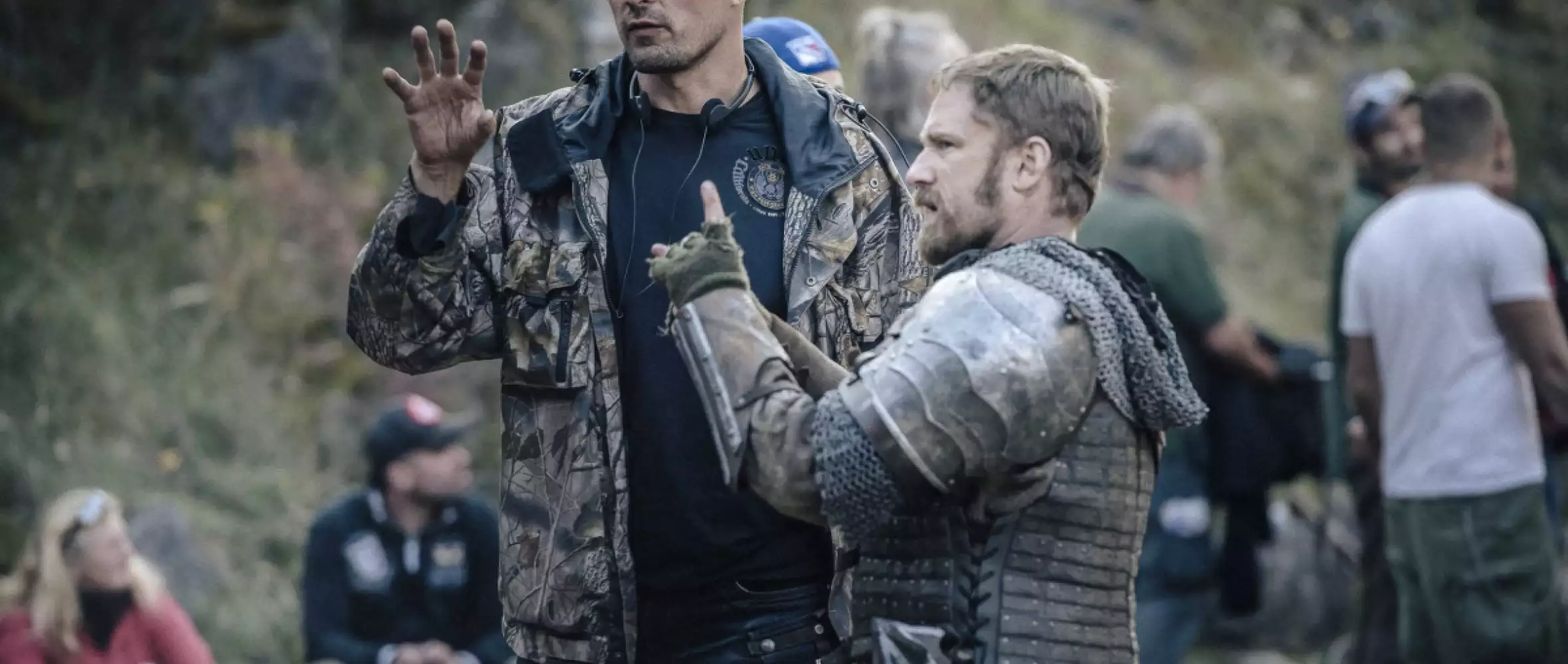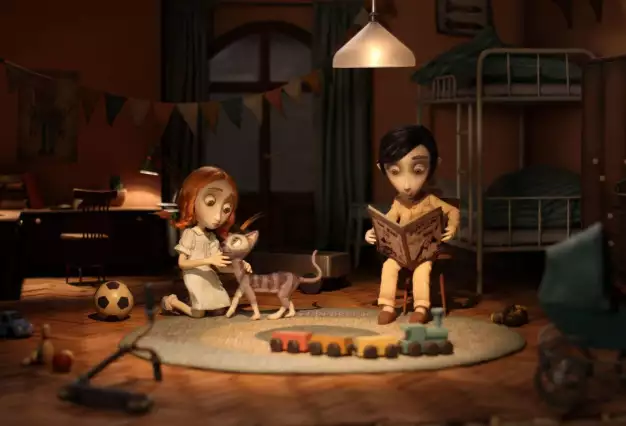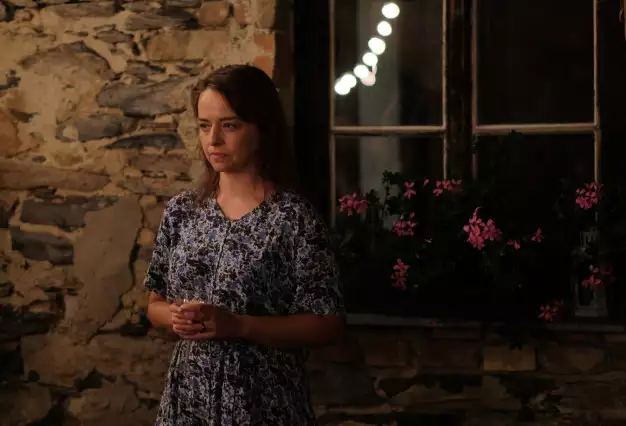
18 March 2019
Czechs Are Not Hotheads, Says Maker of New Historical Epic
Czechs Are Not Hotheads, Says Maker of New Historical Epic

Medieval is the most expensive Czech film ever made, with a budget close to €20 million. Screenwriter, director, and producer Petr Jákl drew inspiration for his work — honoring 15th-century national hero Jan Žižka while extolling the beauty of the Bohemian countryside — from historical epics like Braveheart and The Last Samurai.
Article by Vojtěch Rynda for Czech Film Magazine / Spring 2019
Medieval recounts the story of Jan Žižka (ca.1360–1424), leader of the military wing of the Hussites, the followers of theologian and church reformer Jan Hus. Žižka’s importance in Czech history is attested to by the prominence of the sculpture atop the hill of Vítkov in Prague, one of the largest equestrian statues in the world. Jákl’s film, titled simply Jan Žižka in the original, banks on Czechs’ familiarity with Žižka while at the same time seeking to entice foreign moviegoers with his dramatic life story.
After eight years of preproduction, shooting on Medieval began on September 17 and ended on December 8 in a swimming pool in Nymburk, where the crew filmed the main characters engaged in underwater combat. “Fifty-six days of shooting is endless,” said Jakl of the preceding months. “We had three hundred people on the set the very first day, and even after that a lot of action and crowd scenes were shot.” Jákl was familiar with this kind of work from his experience as actor and stuntman on foreign productions like xXx, Alien vs. Predator, Bad Company, and the historical series The Borgias. “But I couldn’t even begin to imagine what it would be like as a director and producer,” he said. “That was something altogether different for me, and of course it made for a lot of complications.”
Jákl had to cross the bridges as he came to them. “We always had to find a way to shoot the scene, even when a lot of the time it looked impossible. Of course, with a budget of 100 million dollars a director can just have a whole set redone if it doesn’t suit his vision. But we didn’t have that kind of budget, so it was important for us to be able to adapt. If something wasn’t working, then we had to find a different camera angle or rehearse different blocking with the actors.”
Even the original budget of €10,461,538 (CZK 272 million), financed by the Czech Film Fund, made Medieval the most expensive film in Czech history, pushing it past the previous record holder, Dark Blue World, by Jan Svěrák. But that sum has long since been exceeded, Jákl said: “The budget is now over 400 million crowns (€15,384,615) and we’ll see where postproduction takes it. I think it will be half a billion in the end. The original estimate of CZK 270 million had to be increased substantially due to factors like the involvement of foreign actors.”
How to track down stars: from Michael Caine to Ben Foster
Jákl said having well-known actors involved is key. “If a project with a budget like this doesn’t feature international stars, the return on investment is very complicated, or, actually, unrealistic. Stars choose their projects carefully, since they get a lot of offers. They don’t want to tarnish their names, or they might be at a point where they just don’t need to take jobs anymore.”
The latter describes the situation of two-time Oscar winner Sir Michael Caine, perhaps the best-known cast member of Medieval, in which he plays Lord Boreš. “We reached out to Mr. Caine and it was a huge surprise when he got back to us saying he liked the script very much and would take the role,” Jákl recalled.
The role of General Žižka is played by U.S. actor Ben Foster (Leave No Trace, Inferno, 3:10 to Yuma). “Ben only takes films he really wants to do,” said Jákl. “For people like him, the money is important, but it’s not necessarily the main thing.”
Australian actress and singer Sophie Lowe is the leading lady, with Žižka’s brother, Jaroslav, played by Englishman William Moseley, known from The Chronicles of Narnia, also filmed in the Czech Republic. The villain Torak is portrayed by Danish actor Roland Moller, and the important character of Rosenberg is played by well-known German actor Til Schweiger (Atomic Blonde, Inglourious Basterds, King Arthur). Czech actors in Medieval include Karel Roden in the role of King Wenceslaus IV, along with Ondřej Vetchý, Jan Budař, Marek Vašut, and others.
Medieval was shot in and around the castles of Orlik, Křivoklát, Zvíkov, Kokořín and Točník, the “America” quarry near Prague, and the “Valley Mill” in the picturesque region known as Bohemian Switzerland, where a number of classic Czech fairytales have been filmed. Other iconic locations used in the shoot included Prague’s Charles Bridge and some favorite forests and caves.
“If the film was going to be made the way I imagined it, the budget simply had to be high,” Jákl said. “That allowed us to capture the beauty of the Czech Republic. Audiences will be delighted to see the splendor of our landscape,” he added, praising the work of Danish cinematographer Jesper Tøffner.
Jákl said the epic is also grounded in his own sense of national identity and pride: “One of the fundamental reasons why I made a film about Žižka is that I really am proud to be Czech. I think Czechs have the positive trait of being able to reach agreement, but, at the same time, fighting when necessary. We aren’t hotheads, we know how to compromise. And having travelled the world over, I find this kind of personality suits me best. We Czechs should be prouder of who we are.”
The filmmaker also cited his admiration for patriotic historical sagas like Braveheart and The Last Samurai as part of his impetus for making Medieval. “I love these movies, and being able to make something like that, albeit on a tighter budget, is a dream come true for me,” he said.
The primary historical consultant on Medieval was Dr. Jaroslav Čechura, who along with other experts advised the filmmakers on set design, costumes, and weapons. “We tried, of course, to stick to the period reality as much as possible. But sometimes it had to be altered a bit for the purposes of the film,” Jákl said of the search for balance between historical credibility and stylization. “Artistic invention is a necessity in epic films like this. I think other films in this genre have a similar take on authenticity, so we were no exception. We weren’t making a documentary, so we only stuck to the historical basis to the extent that it didn’t interfere with the spectacle.”
Medieval was created with support from the Czech Film Fund, the Prague Film Fund, the Creative Europe MEDIA program, Crestyl, and other institutions. The vast majority of funding, however, came from private investments by Jákl and his foreign partners, namely British coproducer Cassian Elwes whose filmography includes the Oscar-winning Dallas Buyers Club, the bio-pic The Butler, and the historical drama Mudbound. According to Jákl, the budget was increased from 272 million CZK just one month before shooting. This was possible thanks in part to the sale of the emerging project abroad. “There was a lot of interest in Medieval in the film industry market,” he said. “We were able to sell it in a lot of territories based on the cinematography alone, which is wonderful.”
Jákl already had sizeable ambitions with his second project as director and producer, Ghoul (2015), an English-language horror film featuring foreign actors, inspired by the 1930s Ukrainian famine and the story of serial killer Andrei Chikatilo. His debut was the ambitious thriller Kajínek (2010), which revisited the life of one of the most notorious Czech criminals ever, convicted of a double murder-for-hire and attempted murder, and sentenced to life in prison.
Jákl wrote the screenplay for Medieval based on an earlier script by Marek Dobeš and Michal Petruš and a story idea by his father, Petr Jákl Sr., who also served as an executive producer, along with Martin J. Barab and Kevin Bernhardt. Once the demanding postproduction work is complete, Medieval is slated for theatrical release in 2020.




